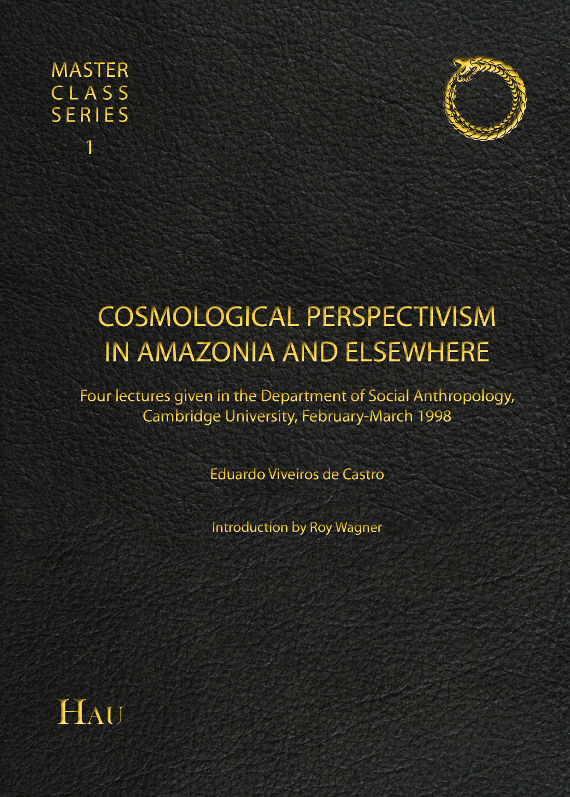Jacques Monod: Chance and Necessity (1970–) [FR, EN, DE, RO, IT]
Filed under book | Tags: · biology, causality, chance, cybernetics, evolution, genetics, god, information, life, materialism, necessity, noise, philosophy, science, thermodynamics

In this classic book, Nobel Prize winner Jacques Monod interprets the processes of evolution to show that life is only the result of natural processes by “pure chance”. The basic tenet of this book is that systems in nature with molecular biology, such as enzymatic biofeedback loops can be explained without having to invoke final causality. (from Wikipedia)
Publisher Seuil, Paris, 1970
197 pages
English edition
Translated by Austryn Wainhouse
Publisher Vintage, 1971
199 pages
Reviews and commentaries: Bernard Strauss & Erica Aronson (Perspectives in Biology and Medicine, 1972), R.J. Hernstein (Commentary, 1972), F. Eugene Yates & Arthur S. Iberall (Annals of Biomedical Engineering, 1973), Danny Yee (1994), Oren Harman (LA Review of Books, 2014).
Le Hasard et la Nécessité (French, 1970, 7 MB)
Chance and Necessity (English, trans. Austryn Wainhouse, 1971, 29 MB, no OCR)
Zufall und Notwendigkeit (German, trans. Friedrich Griese, 1977)
Hazard si necesitate (Romanian, trans. Sergiu Sararu, 1991, 15 MB)
Il caso e la necessità (Italian, 1997, 7 MB)
Brian Kane: Sound Unseen: Acousmatic Sound in Theory and Practice (2014)
Filed under book | Tags: · acousmatic sound, aesthetics, electronic music, music, music theory, philosophy of music, sound, sound studies

“Sound coming from outside the field of vision, from somewhere beyond, holds a privileged place in the Western imagination. When separated from their source, sounds seem to manifest transcendent realms, divine powers, or supernatural forces. According to legend, the philosopher Pythagoras lectured to his disciples from behind a veil, and two thousand years later, in the age of absolute music, listeners were similarly fascinated with disembodied sounds, employing various techniques to isolate sounds from their sources. With recording and radio came spatial and temporal separation of sounds from sources, and new ways of composing music.
Sound Unseen explores the phenomenon of acousmatic sound. An unusual and neglected word, “acousmatic” was first introduced into modern parlance in the mid-1960s by avant garde composer of musique concrete music Pierre Schaeffer to describe the experience of hearing a sound without seeing its cause. Working through, and often against, Schaeffer’s ideas, Brian Kane presents a powerful argument for the central yet overlooked role of acousmatic sound in music aesthetics, sound studies, literature, philosophy and the history of the senses. Kane investigates acousmatic sound from a number of methodological perspectives-historical, cultural, philosophical and musical-and provides a framework that makes sense of the many surprising and paradoxical ways that unseen sound has been understood. Finely detailed and thoroughly researched, Sound Unseen pursues unseen sounds through a stunning array of cases-from Bayreuth to Kafka’s “Burrow,” Apollinaire to Zizek, music and metaphysics to architecture and automata, and from Pythagoras to the present-to offer the definitive account of acousmatic sound in theory and practice.
The first major study in English of Pierre Schaeffer’s theory of “acousmatics,” Sound Unseen is an essential text for scholars of philosophy of music, electronic music, sound studies, and the history of the senses.”
Publisher Oxford University Press, 2014
ISBN 9780199347841
318 pages
PDF, PDF, PDF (5 MB, updated on 2016-12-23)
Comments (2)Eduardo Viveiros de Castro: Cosmological Perspectivism in Amazonia and Elsewhere (2012)
Filed under book | Tags: · animal, anthropology, body, cosmology, culture, ethnography, indigenous peoples, nature, object, ontology, perspective, perspectivism

“A tour-de-force in the anthropology of ours and other cosmologies. The first official version of the lessons which sparked one of the most influential anthropological movements of the twenty-first century. Four lectures given in the Department of Social Anthropology, Cambridge University, February-March 1998.” (from the back cover)
“The subject of these lectures is that aspect of Amerindian thought which has been called its “perspectival quality” or “perspectival relativity”: the conception, common to many peoples of the continent, according to which the world is inhabited by different sorts of subjects or persons, human and nonhuman, which apprehend reality from distinct points of view. I shall try to persuade you that this idea cannot be reduced to our current concept of relativism, which at first it seems to call to mind. In fact, it is at right angles, so to speak, to the opposition between relativism and universalism.” (from page 45)
With an Introduction by Roy Wagner
Publisher HAU, Manchester, 2012
HAU Masterclass Series, 1
Creative Commons Attribution-NonCommercial-NoDerivs 3.0 Unported
ISSN 2049-4769
168 pages
PDFs, EPUBs, HTML (from the publisher)
single PDF (6 MB)
For more from Viveiros de Castro see Monoskop wiki.
Comment (0)
